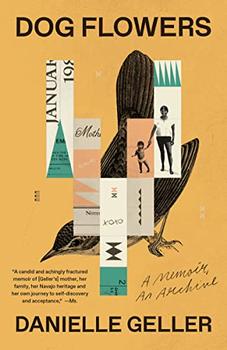Summary | Excerpt | Reviews | Beyond the book | Read-Alikes | Genres & Themes | Author Bio

A Memoir
by Brando SkyhorseFrom PEN/Hemingway award winner Brando Skyhorse comes this stunning, heartfelt memoir in the vein of The Glass Castle or The Tender Bar, the true story of a boy's turbulent childhood growing up with five stepfathers and the mother who was determined to give her son everything but the truth.
From PEN/Hemingway award winner Brando Skyhorse comes this stunning, heartfelt memoir in the vein of The Glass Castle or The Tender Bar, the true story of a boy's turbulent childhood growing up with five stepfathers and the mother who was determined to give her son everything but the truth.
When he was three years old, Brando Kelly Ulloa was abandoned by his Mexican father. His mother, Maria, dreaming of a more exciting life, saw no reason for her son to live his life as a Mexican just because he started out as one. The life of "Brando Skyhorse," the American Indian son of an incarcerated political activist, was about to begin.
Through a series of letters to Paul Skyhorse Johnson, a stranger in prison for armed robbery, Maria reinvents herself and her young son as American Indians in the colorful Mexican-American neighborhood of Echo Park, California. There Brando and his mother live with his acerbic grandmother and a rotating cast of surrogate fathers. It will be over thirty years before Brando begins to untangle the truth of his own past, when a surprise discovery online leads him to his biological father at last.
From an acclaimed, prize-winning novelist celebrated for his "indelible storytelling" (O, The Oprah Magazine), this extraordinary literary memoir captures a son's single-minded search for a father wherever he can find one, and is destined to become a classic.
You might think a story like this — of lies, drugs and alcohol, and child abuse — would be impossibly dark. However, the remarkable thing about Skyhorse's memoir is his matter-of-fact, often humorous style. Although he is honest about the sometimes suicidal depression his childhood caused, he never comes across as self-pitying...continued
Full Review
(873 words)
This review is available to non-members for a limited time. For full access,
become a member today.
(Reviewed by Rebecca Foster).
Brando Skyhorse, author of the memoir Take This Man, has been known by many names. A mistake in his first name meant that his birth certificate read "Brandon Ulloa" (the last name was his real father's) — but his mother, Maria, had it officially changed three months later to "Brando," as she had always intended. Later he was known as Brando Skyhorse Johnson, and now, after an official name change, his name stands as Brando Skyhorse.
 Maria "Running Deer" Skyhorse gave her son his name in honor of Marlon Brando, who refused his 1973 Best Actor Oscar for The Godfather because of Hollywood's poor treatment of Native Americans. He believed the film industry only depicted stereotypes of savages, and also relegated Native American ...
Maria "Running Deer" Skyhorse gave her son his name in honor of Marlon Brando, who refused his 1973 Best Actor Oscar for The Godfather because of Hollywood's poor treatment of Native Americans. He believed the film industry only depicted stereotypes of savages, and also relegated Native American ...
This "beyond the book" feature is available to non-members for a limited time. Join today for full access.

If you liked Take This Man, try these:

by Andre Aciman
Published 2024
The author of Call Me by Your Name returns with a deeply romantic memoir of his time in Rome while on the cusp of adulthood.

by Danielle Geller
Published 2022
A daughter returns home to the Navajo reservation to retrace her mother's life in a memoir that is both a narrative and an archive of one family's troubled history.